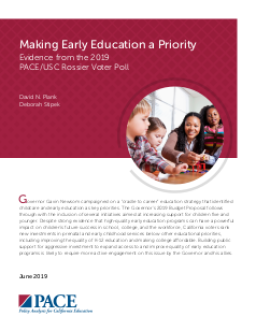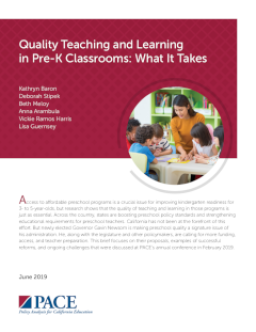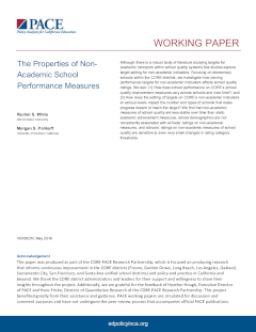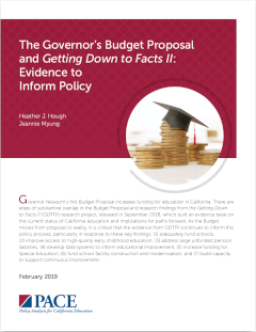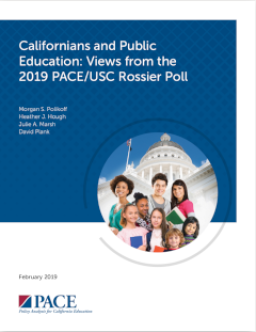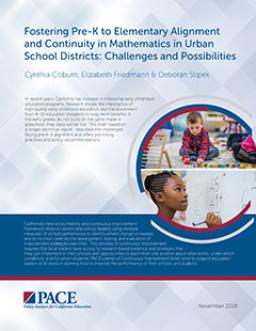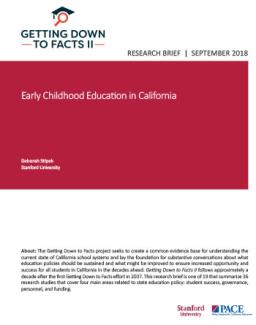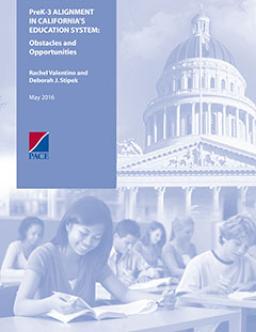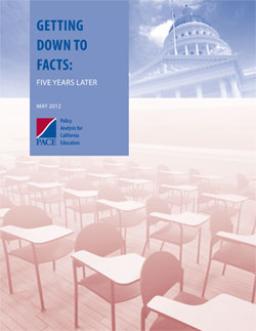Summary
Governor Newsom has proposed initiatives to support children under 5, but California voters prioritize K-12 education and college affordability over early education. Despite evidence that high-quality early education has a powerful impact on children’s future success, more active engagement by the Governor and his allies may be necessary to build public support for expanding access and improving the quality of early education programs.
Summary
Summary
Summary
Governor Newsom’s first Budget Proposal increases funding for education in California. There are areas of substantive overlap in the Budget Proposal and research findings from the Getting Down to Facts II (GDTFII) research project, released in September 2018, which built an evidence base on the current status of California education and implications for paths forward. As the Budget moves from proposal to reality, it is critical that the evidence from GDTFII continues to inform the policy process.
Summary
Summary
Summary
California has over 3 million children ages 5 and under, with a large proportion living in poverty or with non-English-speaking parents. Quality early childhood education is important for future success, but the state system is marked by low wages, inconsistent standards, and insufficient monitoring. Child care is expensive and doesn't meet the needs of nonstandard schedules. California has a large proportion of children in care with no standards, and identifying young children with disabilities is inadequate. There is no centralized data collection system for evaluating improvement efforts.
Summary
Summary
This report commemorates the fifth anniversary of the Getting Down to Facts project, which sought to provide a thorough and reliable analysis of the critical challenges facing California’s education system as the necessary basis for an informed discussion of policy changes aimed at improving the performance of California schools and students. The report focuses on the four key issues that received emphasis in the Getting Down to Facts studies: governance, finance, personnel, and data systems.
